As pet parents, we often focus on the physical health of our furry companions—ensuring they get enough exercise, regular vet checkups, and a cozy loving place to sleep. But did you know that your dog’s diet plays a significant role in their mood, energy levels, and even anxiety? Just like humans, dogs are deeply influenced by the nutrients they consume. A well-balanced, nutrient-rich diet can boost your dog’s mental well-being, while poor-quality food can lead to behavioral issues, sluggishness, and heightened anxiety. Let’s explore how food can affect your dog’s mood, energy, and anxiety, and how you can optimize their diet for better overall health.
1. The Link Between Nutrition and Mood
The mood of your dog is intricately connected to what they eat. Like humans, dogs have neurotransmitters in their brains that regulate emotions, one of the most important being serotonin. This “feel-good” chemical is largely produced in the gut, meaning that a healthy gut can promote a more balanced and happier mood.
- Protein: Protein is vital for producing neurotransmitters like serotonin and dopamine, which are responsible for regulating mood and behavior. A protein-deficient diet can lead to mood swings, aggression, and even depression in dogs. High-quality sources of protein such as lean meats, and fish are crucial for keeping your dog in a good mood. Providing food rich in protein can provide vital nutrients for your active furry friend.
- Omega-3 Fatty Acids: Omega-3 fatty acids, found in fish oils, flaxseed, and certain types of meat, are essential for brain health and can help reduce inflammation. They are also known to support mood stabilization, reducing symptoms of stress and anxiety in dogs. Many veterinarians recommend an Omega-3 rich diet for anxious dogs or dogs suffering from depression.
-
Vitamins and Minerals: Certain vitamins, like B-complex vitamins, play an important role in reducing stress and regulating mood. For example, vitamin B6 helps produce serotonin, while deficiencies in B12 have been linked to lethargy and irritability. Minerals like magnesium and zinc also contribute to a dog’s emotional health and can be beneficial for hyper dogs.
2. The Impact of Diet on Energy Levels
Your dog’s energy levels are directly influenced by the type of food they eat. Dogs, like humans, need a diet rich in carbohydrates, proteins, and fats to maintain their stamina throughout the day. However, not all calories are created equal. The quality of the ingredients can either fuel your dog with sustained energy or cause them to crash, leading to lethargy or hyperactivity. Open Farm always selects the best when creating our recipes.
- Carbohydrates: Carbohydrates provide dogs with energy, but the source of those carbohydrates matters. Open Farm choose whole grains like brown rice, oats, and sweet potatoes because they offer long-lasting energy by being digested slowly. On the other hand, highly processed grains or sugar-laden foods can lead to sudden spikes in energy followed by crashes, making your dog feel tired and sluggish.
- Fats: Healthy fats are a concentrated source of energy for dogs. They are crucial for maintaining stamina, especially in highly active breeds. High-quality fats from fish oil, chicken fat, or flaxseed oil provide sustained energy and help keep your dog alert and focused. Low-fat diets, in contrast, can result in low energy and fatigue.
-
Protein: Protein doesn’t just support muscle maintenance but also plays a role in your dog’s overall vitality. Ensuring that your dog gets enough high-quality protein ensures they can maintain their energy levels throughout the day, particularly if they are physically active. A lack of protein can make dogs feel weak or lethargic.
3. Food and Anxiety in Dogs
Calming diets for dogs are essential to help them thrive. Dogs, like humans, can suffer from anxiety. This can manifest in many forms, including separation anxiety, fear of loud noises, or social anxiety around other dogs or people. The connection between diet and anxiety is often overlooked, but it is incredibly significant. Being intentional about picking the right dog food or supplements for anxiety can make all the difference.- Complex Carbohydrates: Foods rich in complex carbohydrates, like sweet potatoes and brown rice, help regulate blood sugar levels and promote a calming effect on the body. When blood sugar levels drop too low, dogs can become irritable or anxious. A stable diet that maintains blood sugar helps reduce stress.
-
Tryptophan: Tryptophan is an amino acid found in turkey
,and chicken. It is a precursor to serotonin and helps promote feelings of calmness and relaxation in dogs. Incorporating tryptophan-rich foods into your dog’s diet may reduce symptoms of anxiety, especially in high-stress situations. -
Probiotics: A healthy gut equals a happy mind. Recent studies suggest that probiotics, or “good bacteria” in the gut, play a crucial role in mental health by influencing the production of neurotransmitters. Adding probiotics to your dog’s diet, through supplements, can help improve their mood and lower anxiety levels.
4. Foods to Avoid for Better Mood and Health
Certain foods can negatively impact your dog’s mood and mental health and should be avoided to support overall health and well-being. These include:
- Artificial Preservatives and Additives: Many low-quality dog foods contain artificial colors, preservatives, and flavor enhancers, which can cause hyperactivity, anxiety, and digestive problems. Switching to a more natural diet free of synthetic ingredients with Open Farm foods can help stabilize your dog’s mood and reduce behavioral issues.
- Sugar: Just like in humans, sugar can lead to spikes in energy followed by mood crashes. It can also increase hyperactivity and irritability. Be sure to avoid dog treats and foods that contain added sugars. Open Farm doesn’t add sugar to any of their products.
-
Grain Fillers: Low-quality grains, like corn and soy, are often used as fillers in cheap dog food. These do not provide sustained energy and may cause digestive issues that can affect your dog’s mood and energy. Open Farm’s recipes use quality ingredients and no fillers so you can offer the best to your pet.
Conclusion
What your dog eats profoundly impacts their mood, energy, and anxiety levels. A diet rich in high-quality proteins, healthy fats, complex carbohydrates, and essential vitamins and minerals can significantly improve their mental and emotional well-being. By being mindful of the nutrients you provide your dog, you can help them lead a happier, more energetic, and balanced life. If you suspect your dog’s diet may be affecting their mood or anxiety, consult with your veterinarian to create a nutrition plan that supports their overall health or reach out our Open Farm Product Team to chat about your pet.
This article is meant only as an example of might work well for your pet, please reach out to our customer experience team if you have any questions about your dog’s own unique circumstances! To ensure these products are a good fit for your furry friend, we also recommend consulting your vet about any new diet, or environment changes, especially if there is a medical concern. They should be able to help as you and your vet know your pet’s medical history best!





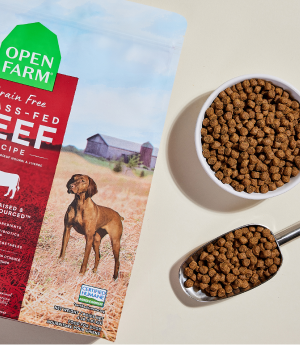
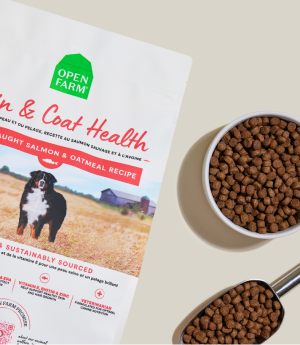
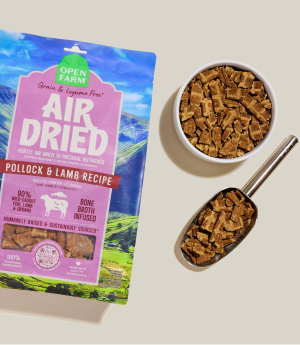
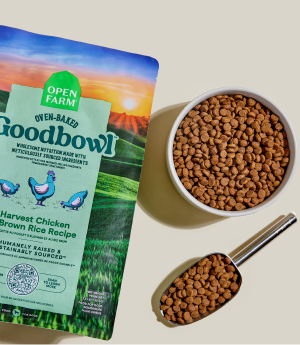
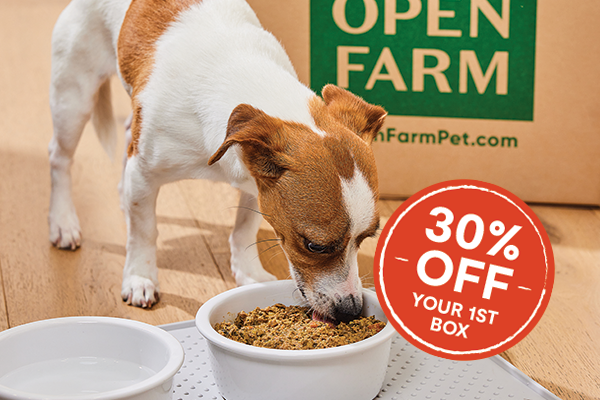

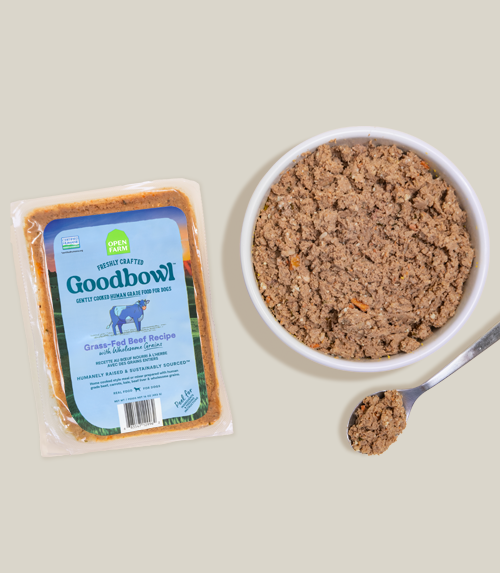

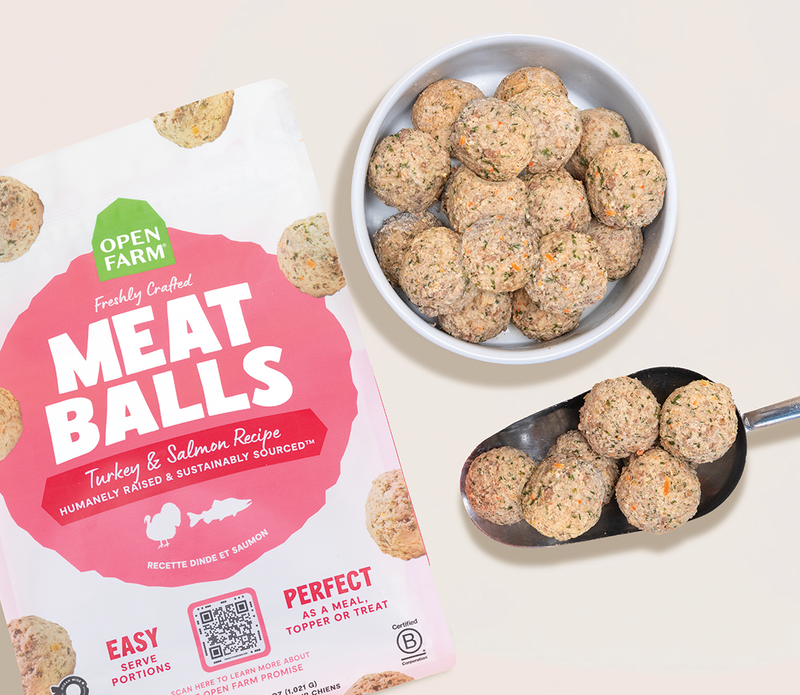
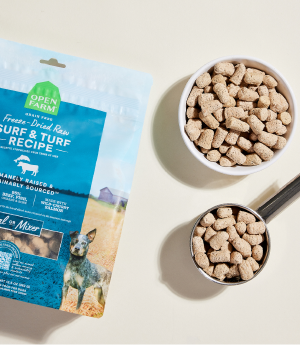
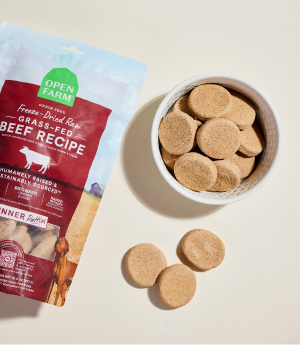
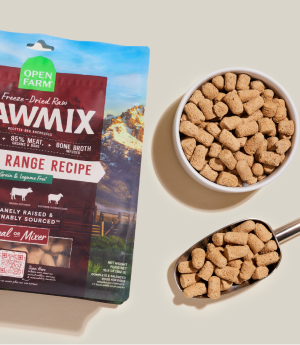
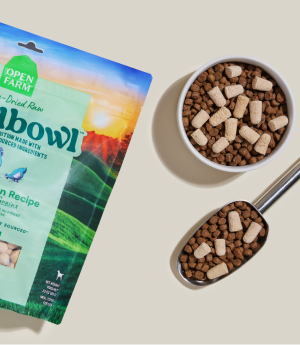
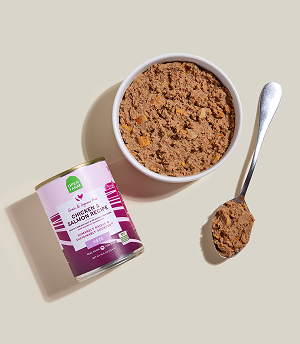
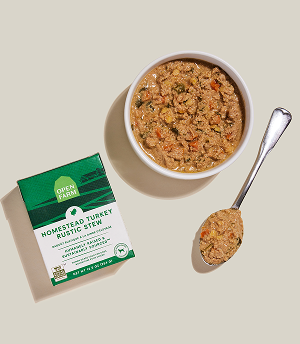
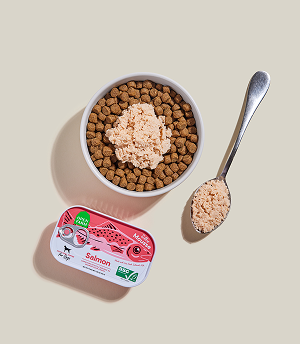
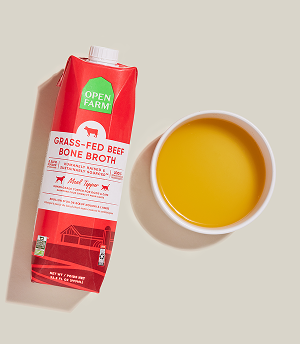

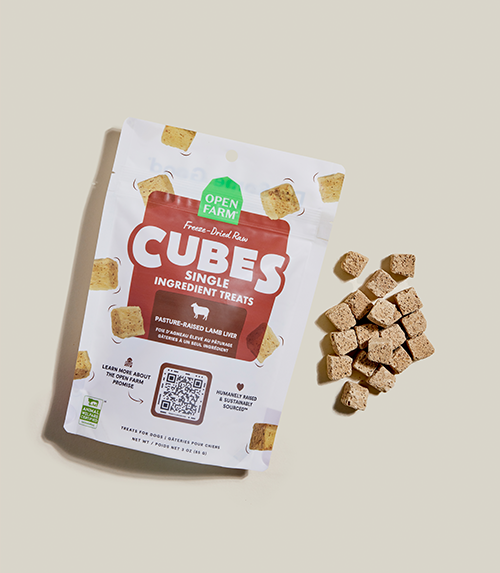
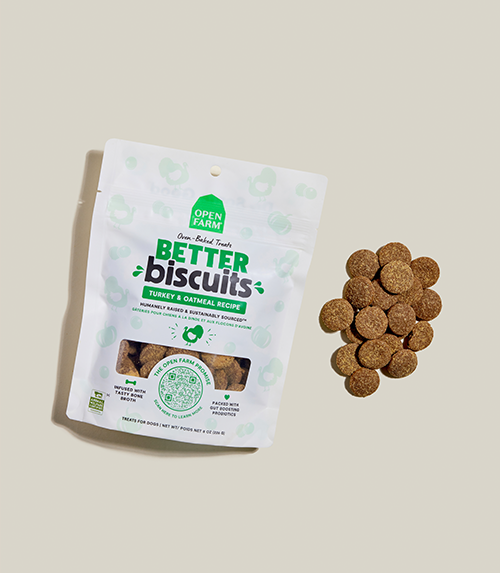











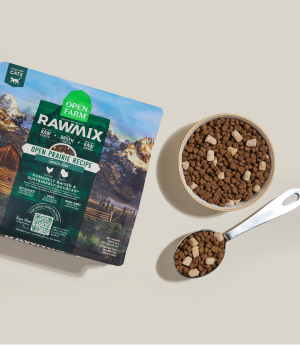
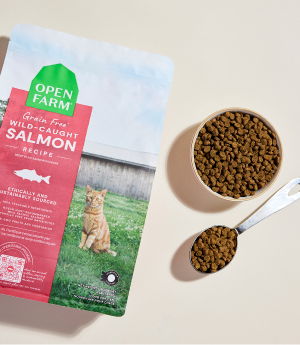
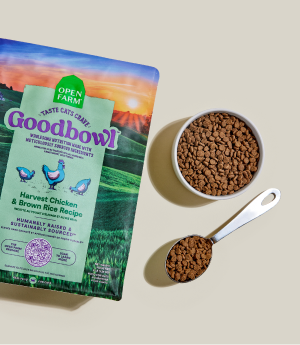
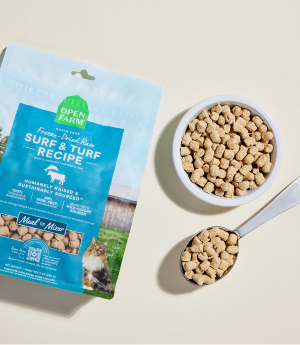
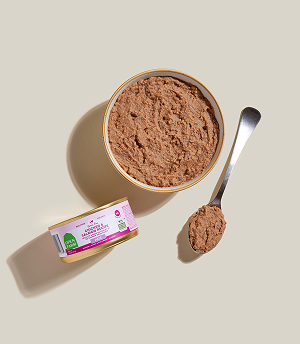
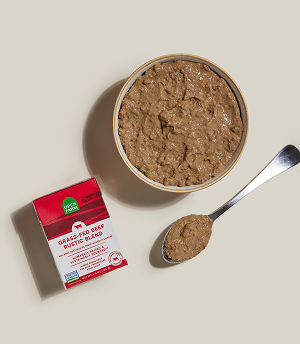
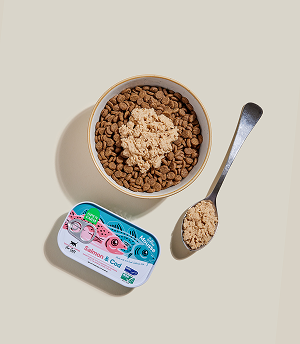
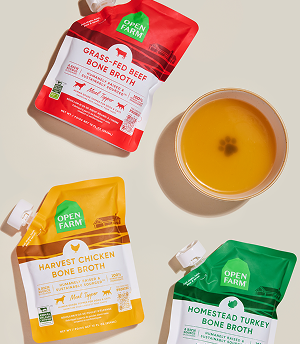

 Sign In
Sign In
 Create Account
Create Account











